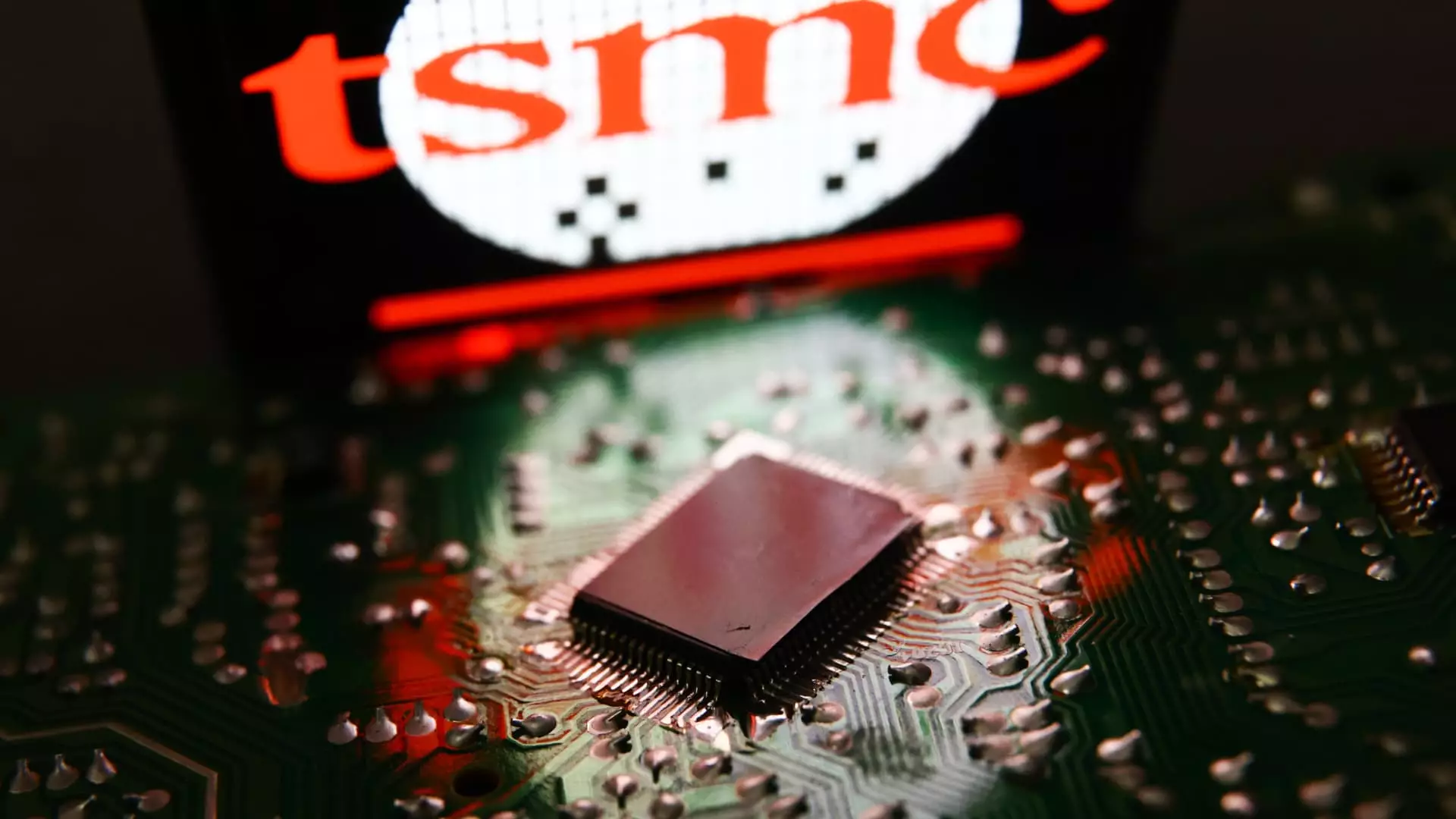In a significant move impacting the global semiconductor landscape, the U.S. government has directed Taiwan Semiconductor Manufacturing Company (TSMC) to halt the shipment of advanced chips to Chinese clients, effective immediately. This decision, which comes amidst rising tensions between the U.S. and China—particularly in technology sectors—raises critical questions regarding the motivations and potential fallout of such restrictions. TSMC’s advanced chips are essential components in various applications, notably those involving artificial intelligence (AI), and thus this export ban represents an escalation in trade measures.
The immediate impetus for this punitive action was revealed when TSMC reported a violation of export controls involving one of its chips found in a Huawei AI processor. Huawei, already on a restricted trade list by the U.S. government, is emblematic of the broader concerns the U.S. has about China’s technological advancements and its implications for national security. TSMC’s compliance with U.S. regulations comes after discovering that one of its chips was integrated into Huawei’s Ascend 910B AI chip—a device already regarded as a pinnacle of AI technology developed by a Chinese firm.
This latest clampdown not only targets Huawei but potentially jeopardizes numerous other companies that rely on TSMC’s advanced semiconductor technology. In fact, shortly after the announcement, TSMC notified its clients, including Chinese chip designers like Sophgo, that it would cease the shipment of chips designed at or below 7 nanometers, commonly used for AI and graphics processing units (GPUs). Such actions underscore a tactical maneuver by the U.S. to scrutinize the supply chains of companies operating within China, assessing whether they facilitate the transfer of restricted technology to sanctioned entities like Huawei.
The manner in which the U.S. imposed these restrictions is also noteworthy. Traditionally, the process of updating export controls can be lengthy and convoluted; however, the U.S. Department of Commerce utilized an “is informed” letter approach. This tactic allows for expedited implementation of new licensing requirements without going through the usual regulatory processes. By adopting this strategy, the U.S. government can adjust to rapidly evolving technological landscapes while also addressing concerns raised by lawmakers from both political parties regarding the adequacy of existing export controls.
The regulation of technology exports to China is just one aspect of a larger geopolitical chess game. The U.S. has previously issued restrictions on other tech giants, including Nvidia and AMD, constraining their ability to ship advanced AI hardware to Chinese firms. Furthermore, there are ongoing discussions within the Biden administration regarding the expansion of these rules to encompass additional Chinese enterprises, including chipmakers, tool manufacturers, and associated entities. The delays in finalizing these regulations illustrate the complexities of managing global trade in an environment marked by competition and mistrust.
As the U.S. solidifies its stance on technology exports, the ramifications of these actions are bound to ripple through international markets. For TSMC and other semiconductor manufacturers, navigating the shifting regulatory landscape will become increasingly critical to their operations and relationships with clients. Concurrently, Chinese tech firms may need to accelerate their developments in semiconductor production capabilities to mitigate reliance on foreign technologies. The effectiveness of the U.S. in curbing China’s technological ambitions rests not only on these recent export restrictions but also on the broader implications for regional and global technological competitiveness. As we move forward, it will be essential to monitor how these developments impact the strategies of both American and Chinese companies and the potential for further geopolitical tensions in the tech arena.


Leave a Reply